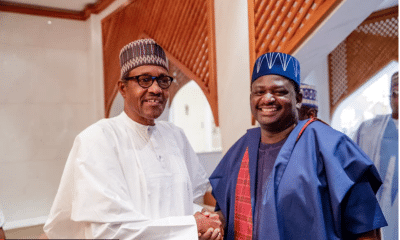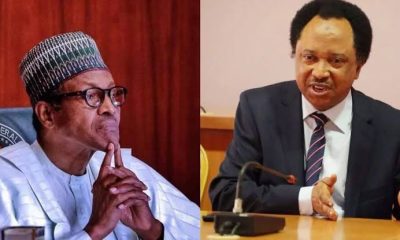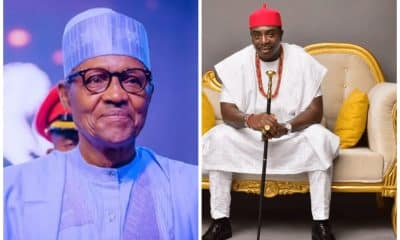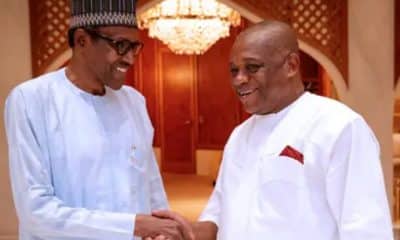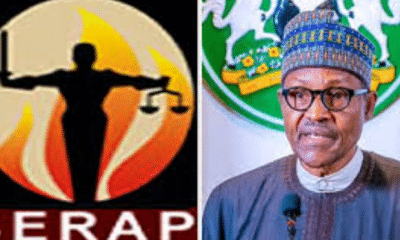Opinion
Democracy Day: Three Years After, Buhari Has Failed
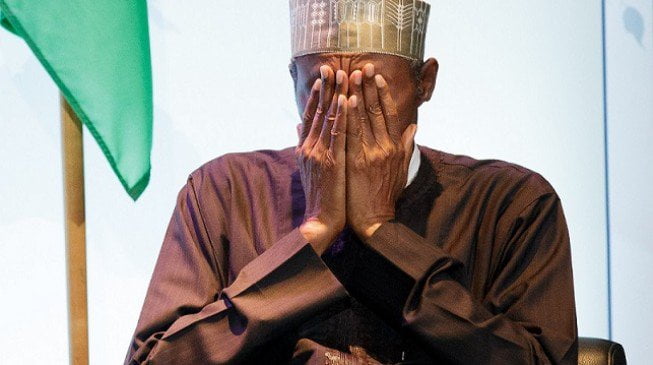
By Ikechukwu Amaechi
ON May 29, 2015, General Muhammadu Buhari, former military head of state, took oath of office as Nigeria’s fifth democratically elected executive president.
It was historic. Not only did Buhari win on his fourth attempt, a doggedness that is uncommon in these shores, he dislodged an incumbent and his political party, the Peoples Democratic Party (PDP), touted as the largest party in sub-Saharan Africa.
Buhari’s All Progressives Congress (APC) birthed on February 6, 2013, barely two years before the momentous elections and its “change” mantra resonated so well that Nigerians who had come to associate PDP’s 16 years in power with impunity and waste, had no hesitation identifying with it.
The president’s inaugural speech where he pledged to belong to everybody and yet to nobody also resonated well. In him, many Nigerians ululated they had found the messiah, envisioning the Nigeria of their dream under his watch. Simply put, Buhari’s ascendancy was acclaimed in some quarters as the much-awaited answer to the country’s leadership conundrum.
But three years after, the euphoria has waned significantly.
A joke I came across recently on the social media which promised handsome reward to anyone who can name any project started and completed by the Buhari administration encapsulates the mood.
joke I came across recently on the social media which promised handsome reward to anyone who can name any project started and completed by the Buhari administration encapsulates the mood.
The only person who volunteered an answer according to the joke, changed his mind because the only project that crossed his mind was the “successful abduction and safe return of Dapchi schoolgirls.” That was before he remembered that the 15-year-old Leah Sharibu was still in the custody of Boko Haram terrorists. So, even that “project” remains uncompleted.
Such jokes with implicit innuendoes are unkind, no doubt, but they reflect the prevalent mood of Nigerians. Expectations were dizzying, fueled in part by the well-oiled APC propaganda machine.
When the naira strengthened against the dollar and even the epileptic power supply seemed to have improved shortly after the inauguration, “body language,” was quickly added to the country’s political lexicon. The enthralling picture of a leader who doesn’t even need to talk to get things done, was vigorously painted on the country’s leadership canvass.
Not anymore. Granted, the president’s support base that he daily nourishes with political red meat still remains faithful, but there are no new recruits.
Any sober and diligent assessment of Buhari’s performance must take cognizance of his promises as a candidate.
Unfortunately, he has disavowed his well-publicized March 16, 2015 contract with Nigerians, an 11-point covenant with the people which spelt out his government’s blueprint to confront corruption, insecurity and infrastructure decay.
If elected president, Buhari vowed he would lead by example, pledging to publicly declare his assets and liabilities and encourage his appointees to do same.
On corruption and governance, he made the “I believe if Nigeria does not kill corruption; corruption will kill Nigeria” statement, arguably his best punch-line in this dispensation. “No matter how vast our resources,” he said, “If they are not efficiently utilized, they will only benefit a privileged few, leaving the majority in poverty.”
To ensure this does not happen, he vowed to “show personal leadership in the war against corruption and also hold all the people who work with me to account.”
So, how well has the president delivered on security, economy and anti-graft war?
On the economy, his supporters insist he has done well. They point to the foreign reserves which hit $47.37 billion on April 5, tout the Economic Recovery and Growth Plan (ERGP), the quick recovery from recession and the decline in rice and fertilizer importations. They also hoist the seeming stability in the financial system on the totem pole of achievements.
But comparing the lowest point of Buhari’s stewardship with the highest, which seems to be the case here, and using that to extrapolate and generalise is grossly misleading and mischievous.
For instance, when it is claimed that the president’s managerial savvy propelled Nigeria to exit recession, what is not said is that the country was not in recession before Buhari came to power.
Nigeria’s economy experienced a negative GDP growth of -1.6 per cent in 2016, one year into Buhari’s presidency and the first in 24 years, leading to increases in unemployment, under-employment and poverty.
In December 2017, the National Bureau of Statistics (NBS) released an unemployment survey which indicated that more than eight million Nigerians became unemployed between January 2016 and September 30, 2017. The report further said the number of unemployed Nigerians rose under this dispensation from 8,036 million in Q4 2015 to 15.998 million in Q3 2017.
“The unemployment rate increased from 14.2 per cent in Q4 2016 to 16.2 per cent in Q2 2017 and 18.8 per cent in Q3 2017. The number of people within the labour force who are unemployed or underemployed increased from 13.6 million and 17.7 million respectively in Q2 2017, to 15.9 million and 18.0 million in Q3 2017,” the report stated.
Also, while it is good to hear that the inflation rate has fallen from 19 per cent in January 2017 to 12.5 per cent in April, 2018, the fact remains that inflation was at single digit before Buhari’s presidency.
Exchange rate, which seems to have stabilized at N360 to a dollar from an all-time high of over N500 hovered around N197/N215 to a dollar before Buhari.
Pundits agree that the recession was avoidable. It only needed a different kind of leadership for that to happen, not a president that took six months to constitute a cabinet and two years to reconstitute boards of parastatals, actions that unsettled foreign investors and the Nigerian business community, leading to massive outflows of foreign portfolio investment.
On security, Buhari’s failings are legion. While it is true, as his loyalists keep reminding Nigerians that the timidity of former President Goodluck Jonathan allowed Boko Haram terrorists to occupy 23 local government areas, it is also true that Nigerians expected much more from Buhari.
Truth be told, three years after promising that Boko Haram would be decimated in three months, the terrorists have not been defeated, technically or otherwise.
Instead, Nigeria has become a huge killing field with Fulani herdsmen, which Global Terrorism Index named the fourth deadliest terror group in the world, wreaking havoc.
On the anti-corruption front, the jury is still out on the administration’s score card.
Granted, many chieftains of the immediate past administration have been hauled before judges to account for mainly campaign-related funds, perceptive Nigerians insist that even on this score, President Buhari has performed below par.
When a president who promised to lead from the front on the anti-graft war fails to fulfil his pledge of publicly declaring his assets, it leaves much to be desired.
A regime buffeted by corruption scandals such as the Mainagate, Babachirgate, the petroleum subsidy, foreign exchange rackets, cannot successfully claim the high moral ground on anti-corruption fight.
Three years down the road, the statistics churned out by officials of government as proof of stellar performance are important. But more important is the evidence of the ordinary citizens whose collective values, the government authoritatively allocates.
The most practical measure of the success of the government is the number of Nigerians whose lots are better today than three years ago.
On the average, life seems to be nastier, more brutish and shorter in Buhari’s Nigeria. Nigerians are more disunited and less trustful of each other than ever before. People are more likely to be killed in the comfort of their homes today than three years ago.
Buhari promised much and delivered little. While people like Femi Gbajabiamila, majority leader of the House of Representatives, can still afford to buy a Mercedes G-Wagon vehicle worth N100m as 50th birthday to wife, hardworking and honest Nigerians with no access to power and attendant privileges are poorer today than three years ago.
The primary responsibility of any government is the protection of lives and property of the people.
Under President Buhari, Gen Theophilus Danjuma, is openly accusing the military of colluding with terrorists to murder Nigerians.
Three years into Buhari’s presidency, Nobel Laureate Professor Wole Soyinka is alleging ethnic cleansing, calling on the UN to intervene. Catholic Bishops are leading protest marches as Nigeria becomes a huge mass grave. Nigerians are waiting to see what difference, if any, the remaining one year will make.

